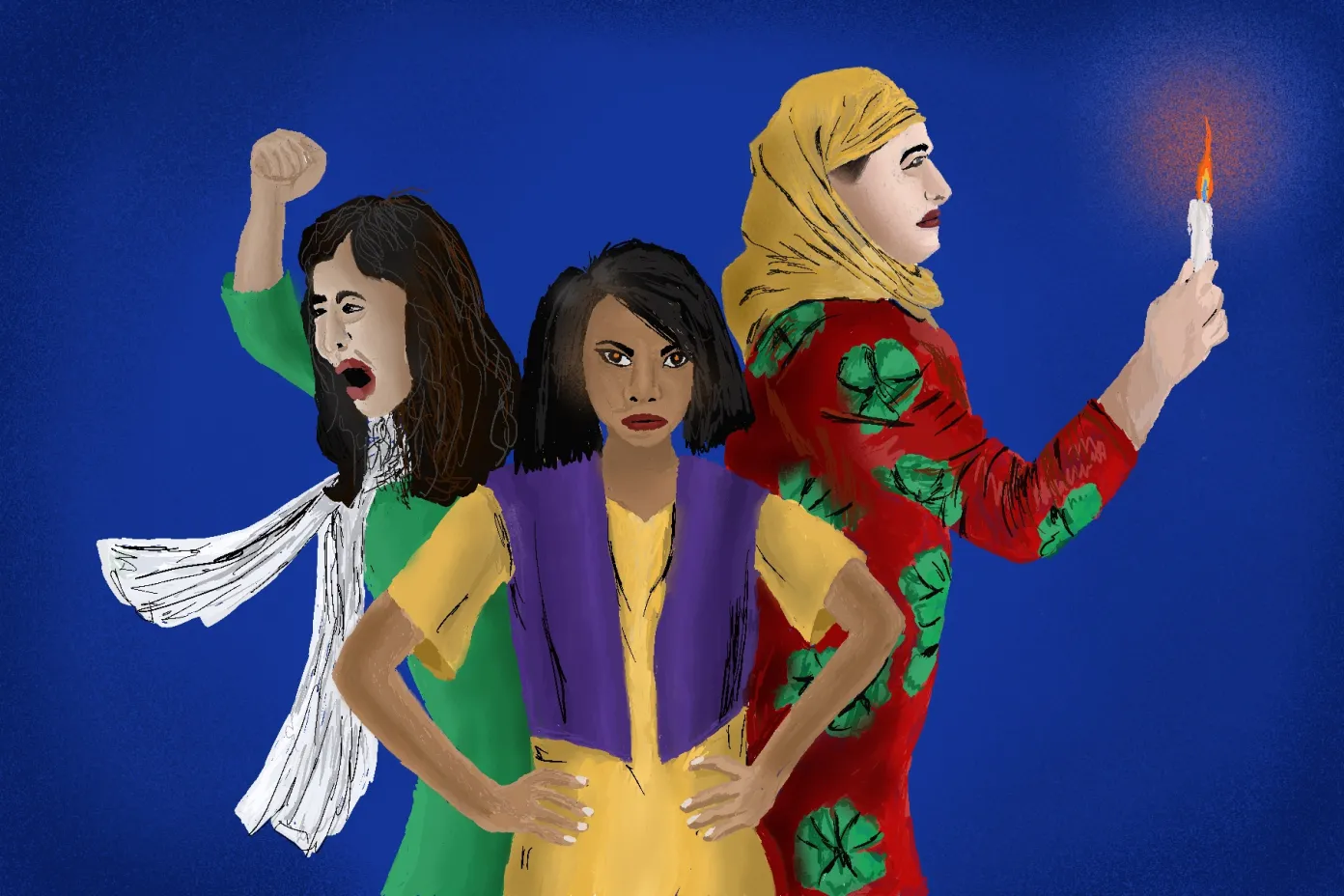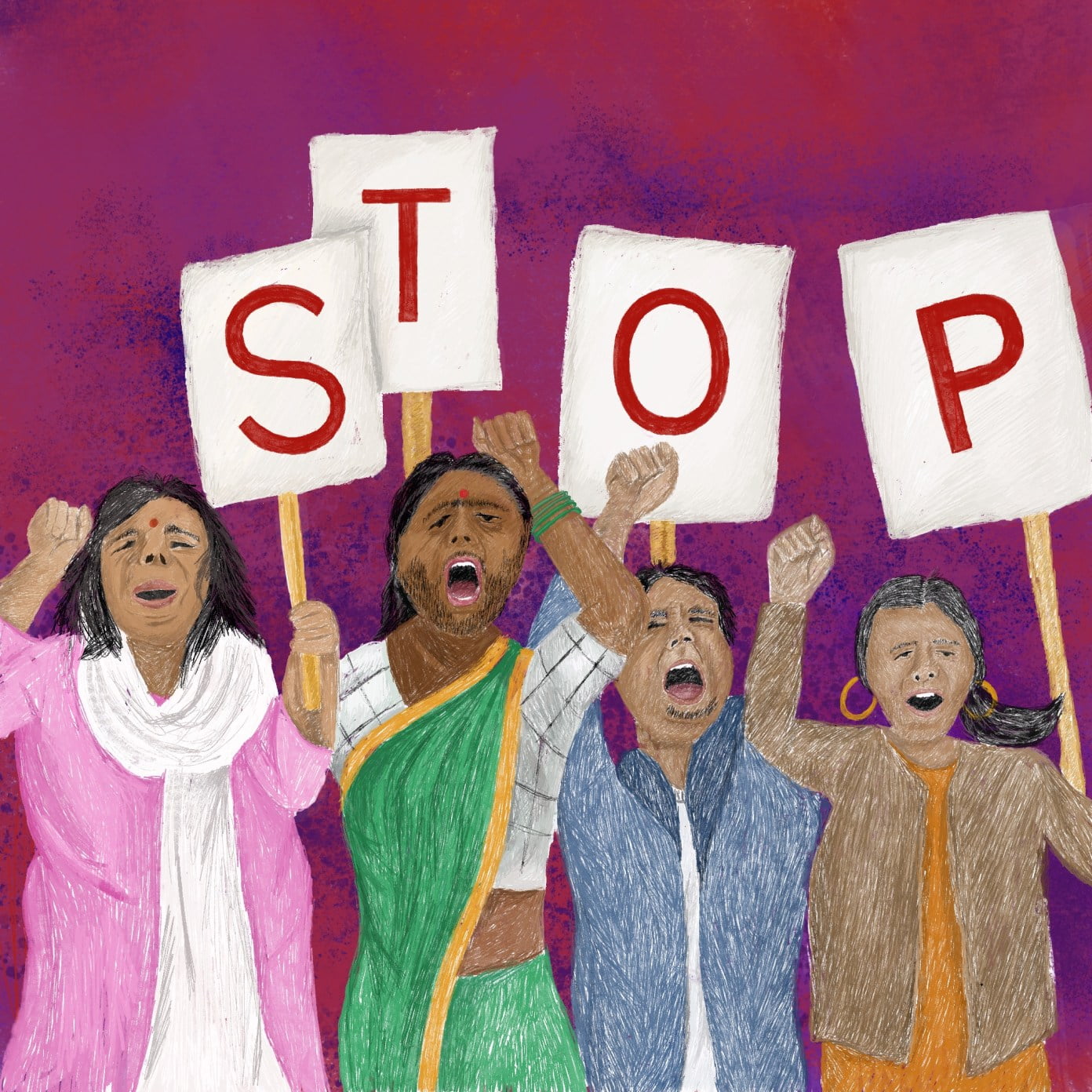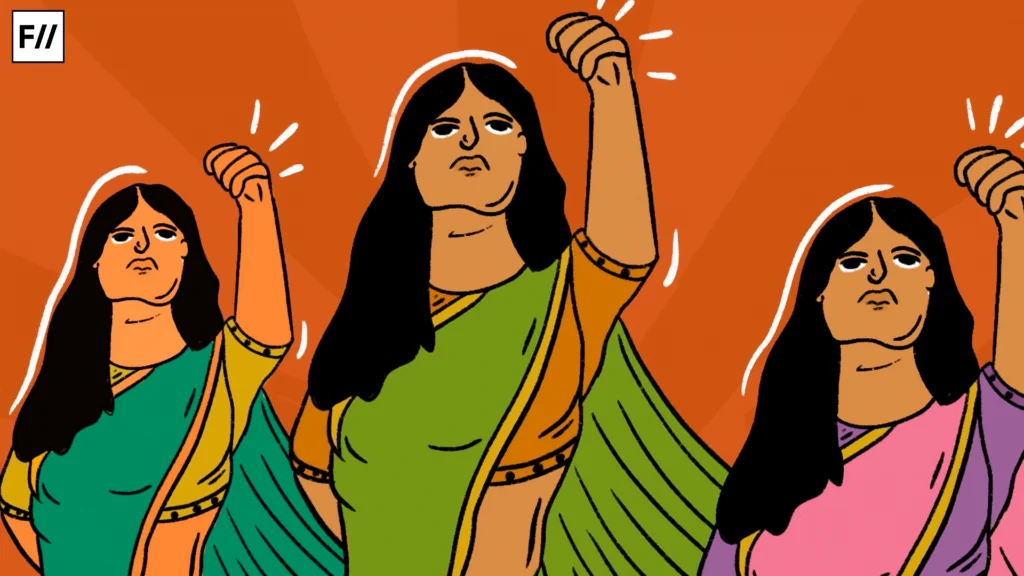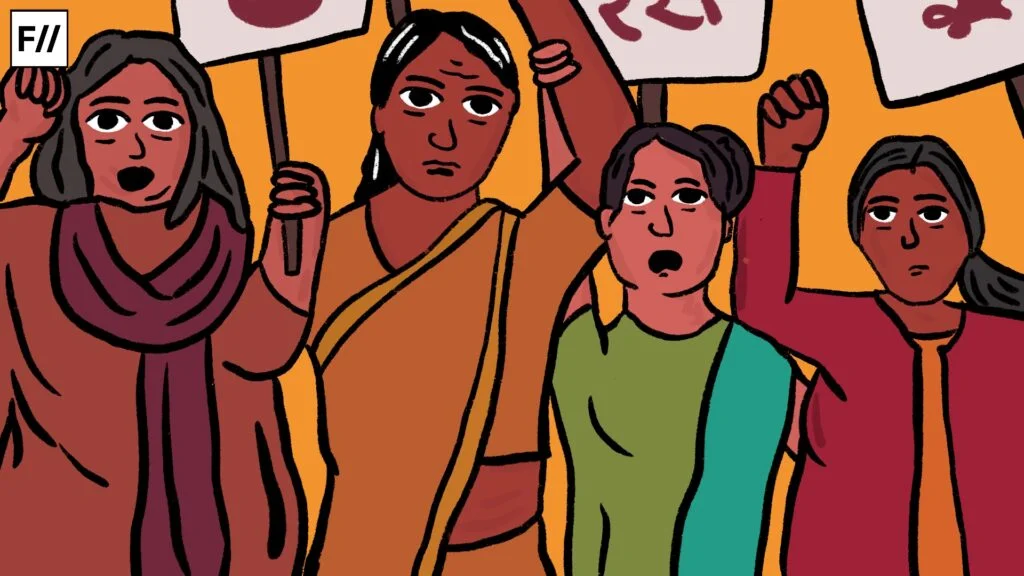TW: Sexual abuse
Gowri Lekshmi, a young Malayalam singer, writer, and composer, released her song “Murivu” almost an year ago, which poignantly addresses the sexual harassment faced by women from as young as 8 years old to as old as 50. Known for her soulful voice and evocative lyrics, Gowri has been making waves in the Malayalam music industry, using her platform to shed light on critical social issues. Despite the song’s important message, it triggered a massive wave of cyber bullying and trolling against her. Gowri Lekshmi has been subjected to intense online abuse, including slut shaming and derogatory comments revealing the pervasive resistance to conversations about sexual harassment.
Gowri Lekshmi has been subjected to intense online abuse, including slut shaming and derogatory comments revealing the pervasive resistance to conversations about sexual harassment.
However, amidst the backlash, there has also been significant support and solidarity from many in the online community, who stand by her courage and message, highlighting the ongoing battle between progress and resistance in the fight for women’s rights. Gowri Lekshmi has been subjected to intense online abuse, including slut shaming and derogatory comments, highlighting the harsh reality that even advocating for women’s rights can attract severe backlash in the digital age.
The song ‘‘Murivu’’
Gowri Lekshmi’s “Murivu” is a hauntingly beautiful and powerful song that delves deep into the traumatic experiences of sexual harassment faced by women of various ages. The lyrics are poignant, evocative, and resonate with a raw emotional intensity that is both heartbreaking and empowering. Through her evocative storytelling and soulful delivery, Gowri captures the silent suffering and resilience of countless women, making “Murivu” a significant piece of art in the fight against sexual harassment.

The opening verse sets a stark tone by introducing the listener to the innocence of an 8-year-old girl and the violation she experiences in a crowded bus, ‘My name is girl, I am 8 years old. In a bus where there’s no room to move, I escaped the grip of a man aged 40’. The imagery of an overcrowded bus where the young girl is cornered by a much older man immediately elicits a sense of helplessness and fear. The simplicity of the language underscores the vulnerability of the child, making the listener confront the harsh reality of such incidents.
‘My name is girl, I am 13 years old. During summer vacation, at a relative’s house, someone touched me inappropriately from behind. It’s called lust, it’s called lust, it’s called…’, the second verse shifts to a 13-year-old girl’s encounter with sexual harassment at a relative’s house, a place typically associated with safety and comfort. The repetition of ‘Athinde peru kaamam’ (“It’s called lust”) highlights the predatory nature of the act and the societal tendency to label and trivialise such heinous behavior. The use of everyday settings like family gatherings makes the narrative even more relatable and disturbing.
‘Even if I don’t know why, a fire burns in my heart, leaving a wound… a wound that never heals, no matter how many days pass…’.The chorus captures the lingering trauma and pain of sexual harassment. The metaphor of a burning fire in the heart and a wound that never heals poignantly conveys the enduring impact of these experiences on a victim’s psyche. The emotional intensity of these lines resonates deeply, emphasising the long-lasting scars left by such traumatic events. Gowri Lekshmi’s heartfelt delivery amplifies the emotional weight of these lines, making the listener acutely aware of the long-term scars left by such experiences.
Gowri Lekshmi’s heartfelt delivery amplifies the emotional weight of these lines, making the listener acutely aware of the long-term scars left by such experiences.
‘My name is girl, I am 22 years old. My work is my god, but one day, hands fell on my shoulders with the promise of helping me progress.’ The third verse highlights the harassment faced by a 22-year-old woman in her professional life. The workplace, often seen as a place of growth and achievement, becomes a site of exploitation. The promise of professional help, followed by inappropriate touching, illustrates the abuse of power dynamics and the pervasive nature of harassment in various spheres of life.
The concluding verse of “Murivu” brings to light the harrowing experience of an elderly woman who faces sexual harassment from a boy as young as her son on public streets. This powerful verse starkly illustrates that sexual harassment knows no age boundaries and can be inflicted by individuals of any age. Gowri Lekshmi’s emotive vocals poignantly convey the shock, shame, and helplessness of the elderly woman, underscoring the song’s message about the pervasive and normalised nature of such abuse in society. The juxtaposition of the harasser’s youth with the victim’s age amplifies the tragedy and highlights the deep-rooted issues of disrespect and predatory behavior that transcend generational lines.
The backlash: online bullying over “Murivu“
Gowri Lekshmi and her song “Murivu” faced severe online bullying after she performed it during the annual program of Reporter TV, a Malayalam news channel. Following the performance, Gowri’s Instagram account and the YouTube video of the song were inundated with comments, many of which were derogatory and personally attacked her. These comments included slut-shaming and accusations of immorality, with some labeling the song a “sex song.”

Additionally, tags such as “not all men,” “there are women criminals as well,” and “men also face harassment” appeared frequently, attempting to downplay the specific issues addressed in the song. The backlash didn’t stop there; troll videos mocking both Gowri and the song were uploaded to various YouTube channels, further amplifying the harassment. This negative reaction highlights the difficulties artists often face when they challenge societal norms and bring attention to uncomfortable truths through their work.
Despite the intense backlash, there was also a significant wave of support and solidarity for Gowri.
Despite the intense backlash, there was also a significant wave of support and solidarity for Gowri. Many listeners resonated with the powerful message of “Murivu” and stood by her, condemning the bullying and emphasising the importance of addressing such critical issues through art. Several listeners shared that the instances described in the song were relatable to their own personal experiences, further validating the song’s relevance and impact.
Gowri Lekshmi’s bold response to the backlash against her song “Murivu” provides a poignant reflection on her personal experiences and the motivations behind her art. In an interview with a channel, Gowri courageously opened up about the incidents that shaped the song, recounting instances of sexual harassment she endured between the ages of eight and 13. She vividly described a traumatic experience on a crowded bus where an older man violated her, and another distressing incident at a relative’s house where she faced lewd behavior from a man.
Despite her fear of speaking out, Gowri’s decision to confront these painful memories in her music reflects her determination to shed light on the realities faced by many women. Her statement, ‘It was not any superfluous lyrics that I wrote in “Murivu” but the real sufferings I endured,’ underscores the authenticity and raw emotion embedded in her song writing.
Wider reflections
The backlash against “Murivu” reflects deeper societal discomfort with confronting uncomfortable truths about gender-based violence and harassment. Cyberbullying aimed at silencing such narratives not only attempts to discredit the artist but also perpetuates harmful narratives that dismiss or undermine victims’ experiences. However, amidst the negativity, Gowri’s resilience and the overwhelming support she received underscore a growing movement towards amplifying voices that advocate for social change.

By bravely sharing her own trauma through music, Gowri encourages listeners to empathise with survivors and confront the uncomfortable realities of sexual misconduct. Her efforts contribute to a broader cultural shift, challenging outdated norms and fostering a more empathetic and informed dialogue about sexual harassment and abuse in society.




